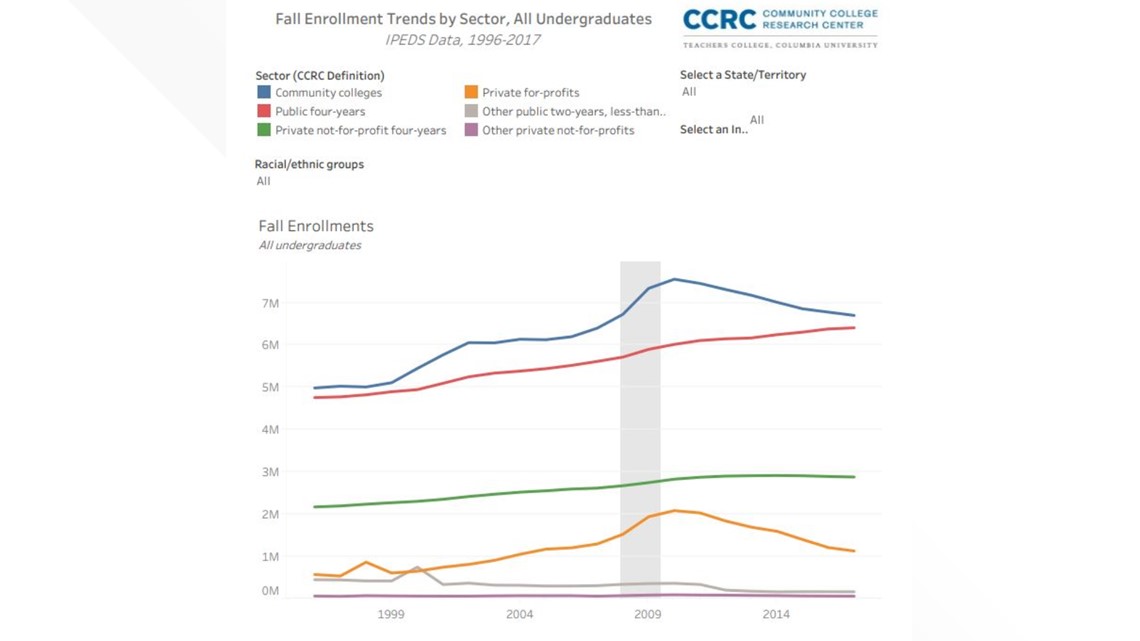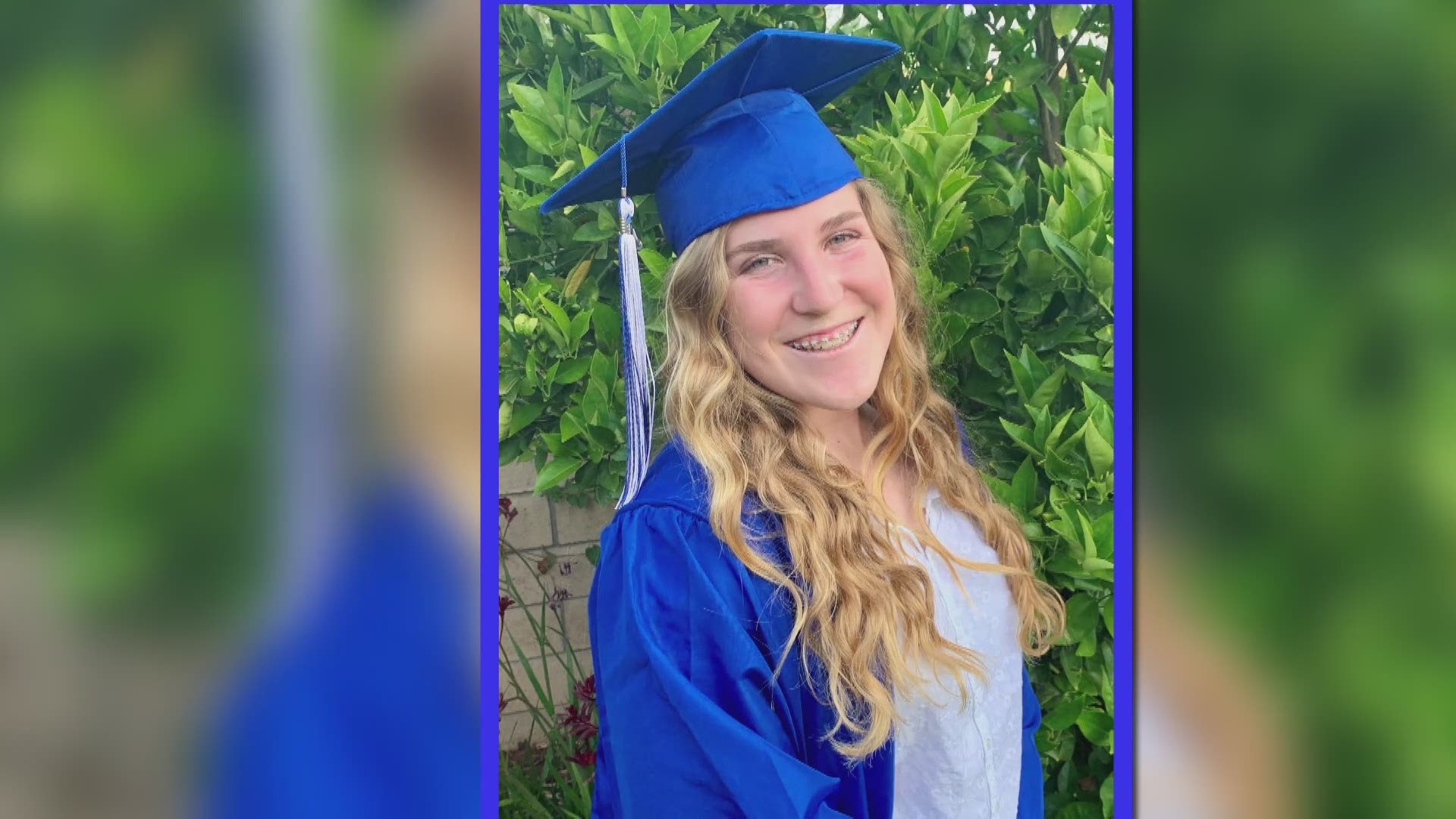SAN DIEGO — Amaia Rizzo of Rancho Bernardo was supposed to go to Washington State in Pullman to study speech and hearing sciences this fall. However, she faced a decision that college freshmen all over the country are grappling with at the last minute.
“I mean, it was just weighing the pros and cons, but really there were not many pros to either side I guess,” said Rizzo. "It's not just me going through this."
Many universities have pulled the plug on in-person classes this semester and the quintessential, but germ-filled college dorm experience. Some universities made the decision when students had already packed their bags. So, what’s a student to do?
“Due to COVID and classes being online, and having to do it remotely, I decided to save the money because it didn’t make sense if I couldn’t move in - it was all going to be online - to go to a local community college instead,” said Rizzo.
There's also the possibility that a student could go through all the trouble of moving, just to be sent back home in a few short weeks. The semester seemed to end just as quickly as it began in North Carolina. The University of North Carolina at Chapel Hill moved undergraduate classes entirely online starting this week because of four clusters of infections.
"We loved having you on campus, but it became clear that we needed to modify our operations to keep you, faculty, staff and the local community safe from the spread of COVID-19," said Chancellor Kevin M. Guskiewicz.
Ultimately, Rizzo said it made sense to save money and opt for online community college this semester. The hope is that if it’s safe, Rizzo will head to Washington for the spring semester to work toward her goal of becoming a speech pathologist.
“In the back of my head, I knew that it was a smarter decision to stay, but that part of me that I wanted to be free - or, not free but I wanted to be independent, you know? I graduated high school. I wanted to enjoy the college experience, but with COVID, either way I wouldn’t have gotten that.”
Jack Beresford is the Director of Communications for the San Diego Community College District, which is comprised of City, Mesa and Miramar colleges. Classes began on Monday, August 17, but many students enroll after the first day of school. Additionally, San Diego Continuing Education begins its semester on September 8.
Beresford said at first, it looked like enrollment numbers would drop.
“With the pandemic, we lost a lot of students initially because of the economic conditions,” said Beresford. “Many of them couldn’t stay in school. They were working, lost their jobs [or] had to care for family members.”
But on the other hand, it seems the makeup of students is just different thanks to coronavirus. Beresford said that means new students are making their way back to a classroom to learn a new skill in this challenging job market.
Just in the past week, Beresford said the district has seen a high volume of people whose fall plans have changed and are seeking online community college instead of the pricey university they initially planned on attending. Among the latest schools facing pressure to lower tuition are Michigan State University and Ithaca College, which both canceled plans to reopen after seeing other colleges struggle to contain coronavirus outbreaks, but are still charging full price. Alternatively, California has the most affordable community college price tag in the nation at $46 per unit.
“It’s been a very - rollercoaster ride is probably a good way to describe it,” said Beresford.
The San Diego Promise Program offers two years of free tuition to full time students. Beresford said the program is experiencing “record” enrollment with a 25% increase. The San Diego Promise is funded by donations, who have reportedly contributed more than $1.3 million to the initiative, and the statewide California College Promise.
“We know that there’s more financial need out there," said Beresford. "Either they or their parents or their family members have suffered economic loss due to the pandemic, so it’s good news in terms of being able to serve more students.”
Beresford said 19% of community college courses were online before the pandemic in San Diego, but now it’s a much larger 99%. Beresford thinks the COVID-19 pandemic may have changed education for good.
“I think at the backend of this of this whole ordeal, we’re going to see many more online classes offered because it does give folk wonderful flexibility,” said Beresford.
“We’re seeing many more people are taking a class at City, a class at Mesa, and/or a class at Miramar to fill their schedules,” said Beresford. “Whereas before, if you were having to drive to a campus and park and all that, you might just go to one school.”
Beresford said San Diego community colleges are predominantly online with an exception of a few classes. They aren’t sure if that will continue for the spring 2021 semester.
The Integrated Postsecondary Education Data System (IPEDS) provides data broken out by student characteristics only for fall enrollments through Fall 2017:



